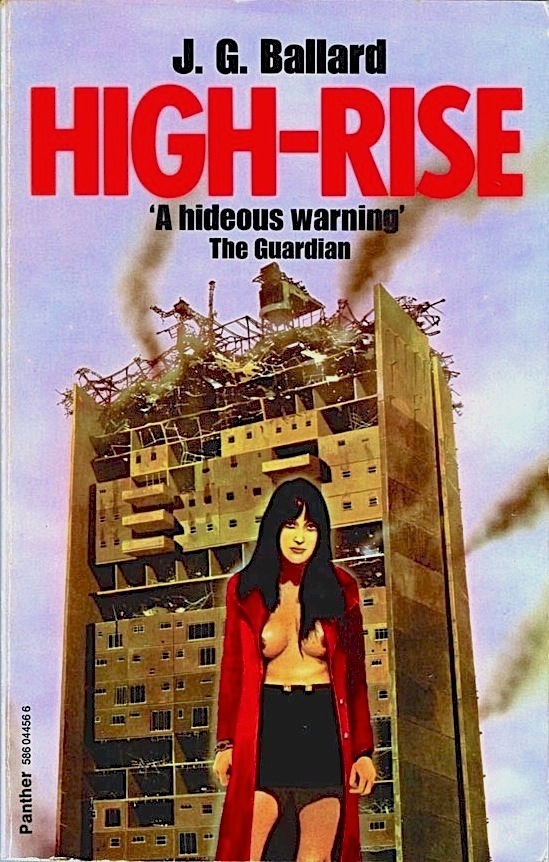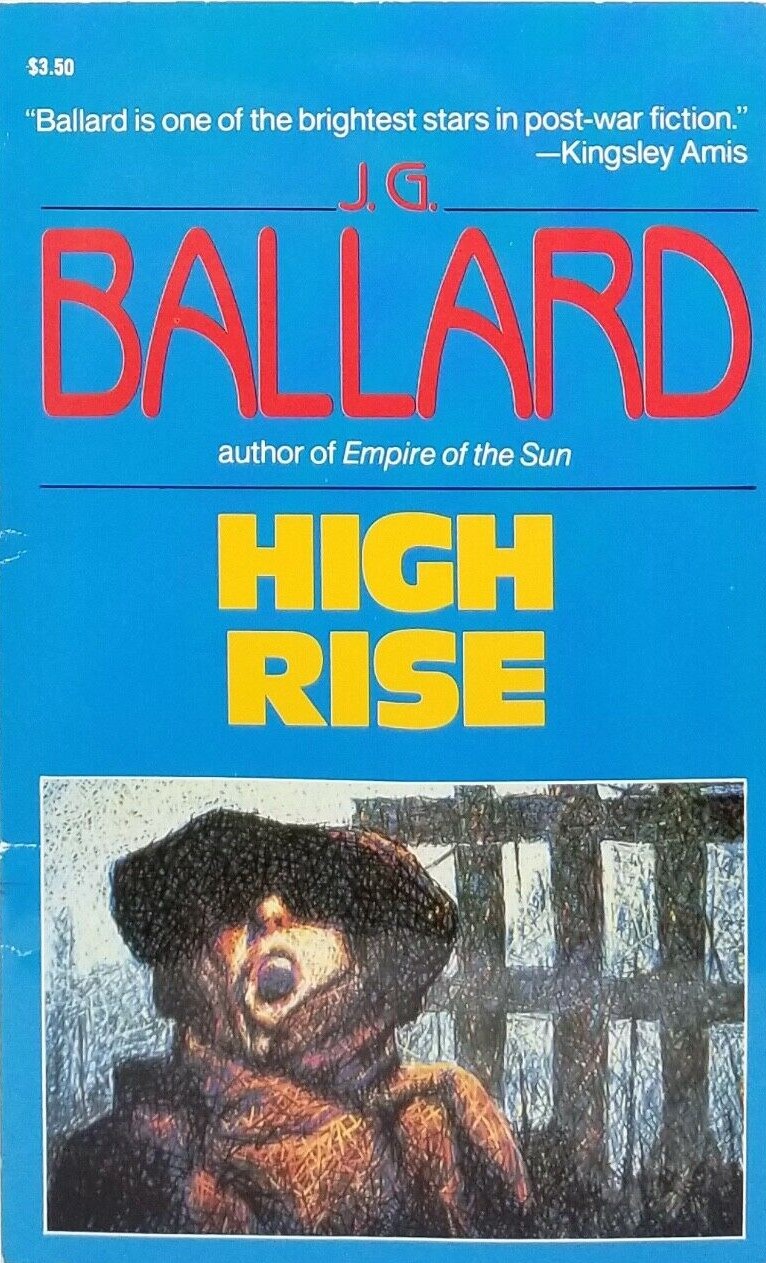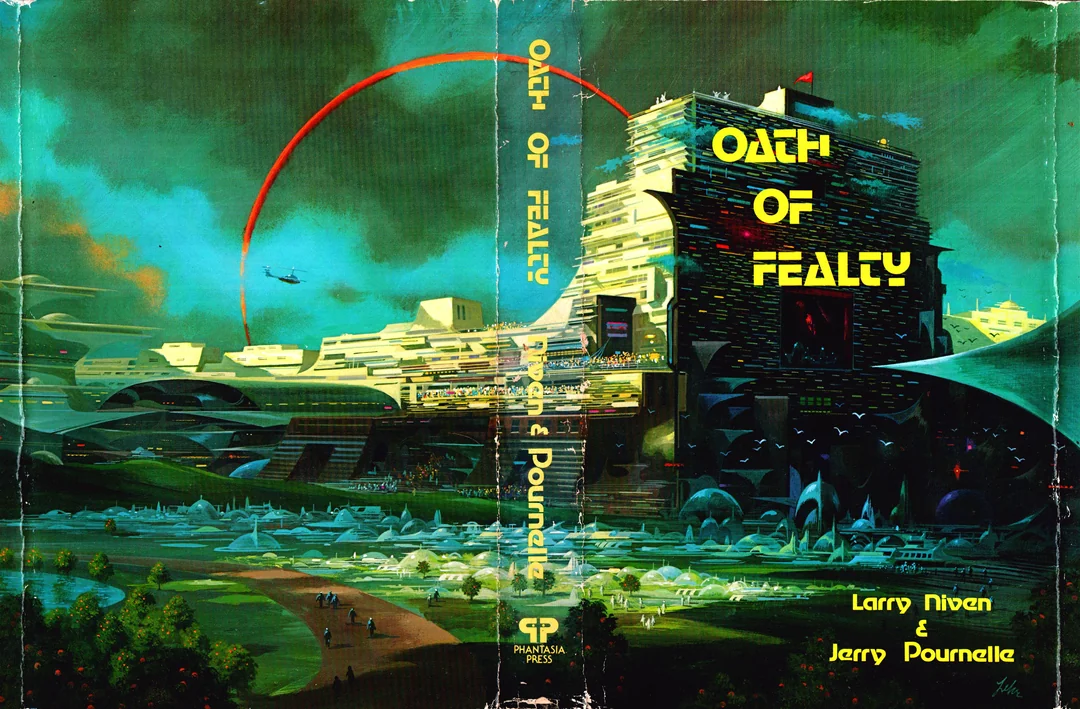FIRST TIME AS COMEDY (7)
By:
May 2, 2024
Some years ago, HILOBROW friend Greg Rowland pointed out that the 1990 movie Dances With Wolves ought to be regarded as a sentimental remake of the 1970 revisionist Western Little Big Man. The series FIRST TIME AS COMEDY will offer additional examples of this recursive (and often, though not always middlebrow) syndrome.
FIRST TIME AS COMEDY: SUPERDUPERMAN vs. WATCHMEN | WILD IN THE STREETS vs. PREZ | EMIL AND THE DETECTIVES vs. M | THE SAVAGE GENTLEMAN vs. DOC SAVAGE | GULLIVAR JONES vs. JOHN CARTER | THE PHONOGRAPHIC APARTMENT vs. HAL | HIGH RISE vs. OATH OF FEALTY | JOHNNY FEDORA vs. JAMES BOND | MA PARKER vs. MA BARKER | DARK STAR vs. ALIEN | SHOCK TREATMENT vs. THE TRUMAN SHOW | JOHNNY BRAVO vs. ROCK STAR | THE FUTUROLOGICAL CONGRESS vs. THE MATRIX | CAVEMAN vs. SASQUATCH SUNSET | LITTLE BIG MAN vs. DANCES WITH WOLVES | THE LAST BLACK MAN IN SAN FRANCISCO vs. BE KIND REWIND | LEN DEIGHTON vs. LEN DEIGHTON.
J.G. Ballard’s New Wave sf novel High-Rise (1975) followed closely on the heels of Crash (1973) and Concrete Island (1974), forming with them an urban-disaster trilogy. In each of these psychosexual parables, the arrangement and lifestyle of contemporary (or near-future) Western society helps impel the protagonist and other characters to regress into a primitive state — it’s Adorno’s dialectic of enlightenment in action.
I discovered these books in the ’90s; they’ve lost none of their power to shock, amuse, provoke, and titillate.
High-Rise, which is set in a residential skyscraper, plays with the by then well-established trope that apartment buildings, bespite (because/despite) their close quarters, can be isolating… even dehumanizing. “A filing cabinet of human lives / Where people swarm like bees in tunneled hives,” one reads in Gerald Raftery’s “Apartment House,” a much-anthologized poem from the 1930s. Before that, E.M. Forster’s 1909 proto-sf novella The Machine Stops was set in an ultra-convenient condo complex whose inhabitants are utterly helpless. By the time Philip K. Dick introduced the neologism “conapt” in The Three Stigmata of Palmer Eldritch (1965) — we’d come to understand that an apartment building featuring what is effectively a complete life-support system can be… dystopian. Ballard’s book pushes this sort of sci-fi satire into utter catastrophe.
When the social order of his high-rise apartment complex (on the outskirts of London) becomes violently dysfunctional, Richard Wilder, a documentary filmmaker who lives on one of the building’s lower floors, literally becomes a social climber — making his way inexorably upward, towards the building’s luxurious penthouse suite. Anthony Royal, the building’s architect, perches up there, awaiting his violent end with a certain oblivious detachment.
The tower block provides its affluent tenants with a supermarket, bank, restaurant, hair salon, swimming pools, a gymnasium, even a school for the inhabitant’s children. Whether by design or not, these conveniences and commodities allow the building’s occupants to gradually become uninterested in the outside world — where life goes on as usual, by the way. England doesn’t descend into atavistic violence… just the inhabitants of this one building.
Minor power failures and petty grievances among neighbors — and between rival floors — soon escalate into an orgy of violence. Tenants band together and attempt to claim particular elevators as their own; groups gather to defend their rights to the swimming pools; drunken party goers raid and vandalize “enemy” floors. Life outside the building becomes irrelevant as people quit their jobs and devote themselves to tribal-esque warfare. Wilder, as mentioned, embarks upon an epic journey to the 40th floor, intending to confront the building’s architect.
If Wilder is the id, in this cod-Freudian scenario, and Royal the super-ego, then our protagonist, Robert Laing, a doctor and medical school lecturer who lives in-between these two characters, and who aspires to be as coolly uninvolved as Royal, is an ego figure. He gets caught up in and discovers that he enjoys the mayhem: fighting in gangs, raiding and vandalizing other floors, killing pets, sexually assaulting women.
It’s straight out of David Bowie’s “Diamond Dogs,” a single released the previous year… which supposedly inspired many sf authors. “The Halloween Jack is a real cool cat / And he lives on top of Manhattan Chase / The elevator’s broke, so he slides down a rope / Onto the street below, oh Tarzan, go man go.” (I’ve wondered for years whether Bowie’s “go man go,” here, is a sly reference to Edgar Rice Burroughs’s invented term gomangani — which is how Tarzan’s ape clan refers to black Africans.) The post-apocalyptic scenario depicted by the Diamond Dogs album, according to Bowie, was inspired by the sci-fi writings of another Burroughs: William.
Also worth mentioning: John Wagner, Alan Grant, and Carlos Ezquerra’s Judge Dredd adventure “The Apocalypse War” (serialized 1/2/82 to 6/26/82). The Judge Dredd comic strip, which began publication in 1977, imagines a 22nd-century Mega-City One, which is subdivided into gigantic towers known as City Blocks. In “The Apocalypse War,” a Soviet City Block engineers a civil war between Mega-City One’s towers… before invading!
PS: High-Rise was one of Joy Division singer Ian Curtis’s favorite books. It was adapted into a 2015 film of the same name, starring Tom Hiddleston, Jeremy Irons, and Sienna Miller, by director Ben Wheatley.
Ballard, Dick, Forster, and everyone else who’s ever deployed satire to express concern about the consequences of affluent people withdrawing from society into a luxurious gated community make an important point. A healthy liberal democracy depends in part on a certain amount of egalitarianism; if we allow feudal living arrangements to flourish, the results could be… medieval. Leave it to conservative-libertarian trolls — in this case, the best-selling sf author team Larry Niven and Jerry Pournelle — to turn a progressive sf trope like this one on its head.
Niven and Pournelle’s 1981 sf novel Oath of Fealty appeared between two better-known efforts by this duo: Lucifer’s Hammer (1977) and Footfall (1985). All three, I believe, were bestsellers. Which tells you a lot about just how shitty mainstream science fiction had become by then. Niven and Pournelle are xenophobic, racist, misogynist, vile reactionaries continuing the legacy of John W. Campbell Jr., et al. As one Medium contributor puts it, regarding the alien-invasion novel Footfall, “Writers such as Niven and Pournelle took science fiction to a sad and lonely place.”
They don’t see it that way, of course. In Oath of Fealty, a quarter of a million Los Angeles residents — affluent and white, with just a couple of exceptions — have retreated into Todos Santos, a massive “arcology” that they don’t find sad or lonely in the slightest. The city has gone to hell — an evergreen conservative talking point and scare tactic — so these folks have placed their faith in the corporation behind Todos Santos. Which quickly becomes a kind of city-state; its internal government is headed by brilliant executives who consult with MILLIE, an all-knowing Computer, via bio-electronic implant in their brains. The once-thriving community where Todos Santos was erected? Destroyed in a race riot; the locale is Watts, say, or Compton. This is trollishness at its most gleeful.
The Todos Santos social order is one that has swapped liberty for security. There are security cameras everywhere, including inside each apartment; nobody minds being surveilled, in fact they like it. This is not a democracy; the arcology’s government is hierarchical, and some of the residents are fabulously privileged while others are less so — and this, too, is quite to its residents’ taste. In fact, when Todos Santos is compared to a feudal society — hence the novel’s title — there is no hint of criticism. Eventually, Todos Santos goes to war with Los Angeles — which doesn’t stand a chance — thus winning a kind of sovereign nation status for itself.
This ain’t rock’n’roll, this is genocide.
MORE FURSHLUGGINER THEORIES BY JOSH GLENN: SCHEMATIZING | IN CAHOOTS | JOSH’S MIDJOURNEY | POPSZTÁR SAMIZDAT | VIRUS VIGILANTE | TAKING THE MICKEY | WE ARE IRON MAN | AND WE LIVED BENEATH THE WAVES | IS IT A CHAMBER POT? | I’D LIKE TO FORCE THE WORLD TO SING | THE ARGONAUT FOLLY | THE PERFECT FLANEUR | THE TWENTIETH DAY OF JANUARY | THE REAL THING | THE YHWH VIRUS | THE SWEETEST HANGOVER | THE ORIGINAL STOOGE | BACK TO UTOPIA | FAKE AUTHENTICITY | CAMP, KITSCH & CHEESE | THE UNCLE HYPOTHESIS | MEET THE SEMIONAUTS | THE ABDUCTIVE METHOD | ORIGIN OF THE POGO | THE BLACK IRON PRISON | BLUE KRISHMA | BIG MAL LIVES | SCHMOOZITSU | YOU DOWN WITH VCP? | CALVIN PEEING MEME | DANIEL CLOWES: AGAINST GROOVY | DEBATING IN A VACUUM | PLUPERFECT PDA | SHOCKING BLOCKING.




